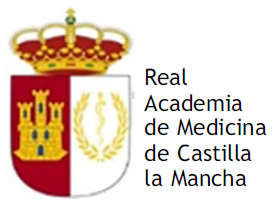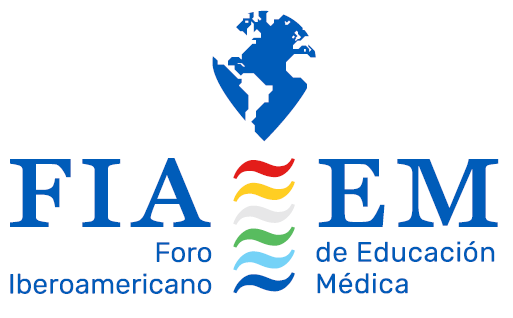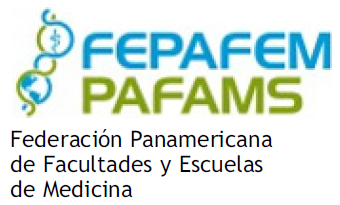The systematic review critically evaluates the evidence available in the literature on a given topic. It is extremely useful in the practice of evidence-based medicine. When it comes to teaching medical sciences, based on a guiding question, a structured literature review can be used to identify, compile, and analyze the available evidence, helping the teaching–learning process in healthcare. In this context, the medical schools in the Brazilian Amazon have been undergoing changes in the way their pedagogical policy projects are constructed, as a result of the need to respond to the health demands of the local community, allowing them to open up to teaching–learning methodologies that are more focused on the student. Therefore, this study aimed to verify the impact of using systematic literature research to support problem-based learning (PBL) and the teaching of clinical professional skills (CPS) in the healthcare axis of the medical course at a university in the Brazilian Amazon.
Materials and methodsEight groups from different semesters of the medical course took part in the study. The students were instructed on the guidelines for systematic literature research according to preferred reporting items for systematic reviews and meta-analyses of studies.
ResultsThe systematic literature review proved to be an excellent tool for articulating the different medical sciences, since the students were able to construct their own learning using a relational approach of the knowledge acquired actively through PBL and CPS with the evidence from the scientific literature versus the regional reality of the health-disease process. The results of the different literature reviews within the healthcare axis were published in the form of scientific articles.
ConclusionThe systematic literature review showed the applicability of evidence-based medicine by students at a public university in the Brazilian Amazon region, who became more motivated and aware of the teaching–learning process applied to healthcare focused on the reality of the region in which they live.
Las revisiones sistemáticas evalúan de forma crítica las evidencias disponibles en la literatura sobre un tema determinado y son extremadamente útiles en la práctica de la medicina basada en la evidencia. Por lo tanto, cuando se trata de enseñar ciencias médicas, partiendo de una pregunta orientadora, se puede utilizar una revisión bibliográfica estructurada para identificar, recopilar y analizar las pruebas disponibles, ayudando al proceso de enseñanza-aprendizaje en la atención sanitaria. En este contexto, las facultades de medicina de la Amazonia brasileña, partiendo de la necesidad de responder a las demandas sanitarias de la comunidad local, han venido experimentando cambios en la forma de construir sus proyectos político pedagógicos, lo que les ha permitido abrirse a metodologías de enseñanza-aprendizaje más centradas en el alumno. Así, este estudio tuvo como objetivo verificar el impacto del uso de la búsqueda sistemática de literatura para apoyar el aprendizaje basado en problemas (ABP) y la enseñanza de las competencias profesionales clínicas (CPC) en el eje de salud del curso de medicina en una universidad de la Amazonia brasileña.
Material y métodosParticiparon en la investigación ocho grupos de diferentes semestres de la carrera de Medicina. Los alumnos fueron orientados sobre las directrices para la investigación sistemática de la literatura según Preferred Reporting Items for reporting systematic reviews and meta-analyses of studies (PRISMA).
ResultadosLa revisión sistemática de la literatura demostró ser una excelente herramienta para articular las diferentes ciencias médicas, ya que los estudiantes fueron capaces de construir su propio aprendizaje utilizando un enfoque relacional de los conocimientos adquiridos activamente a través de PBL y CPC con la evidencia de la literatura científica frente a la realidad regional del proceso salud-enfermedad. Los resultados de las diferentes revisiones bibliográficas dentro del eje salud-enfermedad fueron publicados en forma de artículos científicos.
ConclusiónLa revisión sistemática de la literatura mostró la aplicabilidad de la medicina basada en evidencias por parte de los estudiantes de una universidad pública de la región amazónica brasileña, que se volvieron más motivados y conscientes del proceso de enseñanza-aprendizaje aplicado al cuidado de la salud centrado en la realidad de la región en la que viven.
Literature reviews naturally permeate the academic environment, compiling scientific data and creating pedagogical mechanisms for discussing themes, problems, hypotheses, and innovative methodologies. Of all the types of literature reviews, the systematic one critically evaluates the evidence available in the literature on a given topic and is extremely useful in the practice of evidence-based medicine (EBM)1,2. In this way, knowing how to use this methodological research tool to support innovative pedagogical methodologies can be an alternative for improving the teaching–learning process in regions of Brazil where there is a noticeable educational shortage.
In this context, the Brazilian Amazon has a peculiar educational reality, which has significant repercussions on the health of the local population3,4. The Northern Region of Brazil, which makes up most of the Amazon Region, has one of the worst indicators in terms of doctor to patient ratio, 1.4 doctors per 1000 inhabitants, lower than all the other states in the country5. Therefore, it is essential that medical professionals respond to the health demands in this region in an assertive manner, minimizing errors in medical care and improving the doctor–patient relationship, and this is possible through academic training that meets local needs3.
Considering the educational aspect, the medical schools in the northern region of Brazil, based on the need to respond to the demands of local society and, following the transformations in the rest of the country and the world, have been undergoing changes in the way their pedagogical political projects are built, allowing the opening to teaching–learning methodologies more focused on the student, increasingly leaving behind teaching methodologies focused only on the teacher6,7.
Based on the new National Curriculum Guidelines (NCG) of 2014, medical courses must use active methodologies in their political pedagogical projects, which point to an education that is permanently committed to training more autonomous graduates, with sharper medical skills in making decisions in real situations, in the various health contexts, articulating theory with practice, based on previous knowledge from active learning and experiences with the community6–9.
Among the various active teaching methodologies that meet the expectations of the NCGs for the health area in Brazil, problem-based learning (PBL) has been gaining prominence in promoting the acquisition of knowledge by students and decentralizing knowledge from the hands of the teacher alone. This teaching methodology, which began in 1969 at McMaster University in Canada, is a collaborative learning method for small groups, based on constructivist concepts and hypothetical-deductive theories that promote clinical reasoning to solve authentic medical problems10,11.
On the other hand, the teaching of clinical professional skills (CPS) should be carried out in a practical way in a setting that is closest to real life, using methodological strategies that respond to the medical needs of the local community. Therefore, the discussion of clinical cases, problematization and the use of simulation in clinical training, replacing real patients with mannequins or task trainers, reduces the chances of harm to patients during the practice of medical procedures and builds student confidence12,13.
Given these 2 active pedagogical contexts, one more theoretical and the other more practical, systematic literature searches can be useful for consolidating the teaching–learning process, as long as they are well directed by the teacher in an attempt to improve the pedagogical context that governs the acquisition of knowledge by the student, promoting continuous feedback from the teacher to the groups and vice versa, emphasizing the development of the ability to face real life and aiming to comply with a medical practice based on evidence, and not just on the description of medical concepts14.
Clinicians and researchers regularly turn to systematic literature reviews and meta-analyses to update their respective fields of interest15 since systematic reviews are evidence built on primary studies, which were carried out in an attempt to answer a specific research question16.
Thus, when it comes to the teaching of medical sciences, based on a guiding question on a particular topic, which arises in a PBL session or in a context of practical CPS teaching, a structured literature review can be used that seeks to identify, compile, analyze, and critically evaluate the available evidence on the subject in question2.
When properly applied, the systematic literature review becomes an active methodological tool in consolidating the knowledge acquired through PBL and CPS, and is characterized as knowledge translation, synthesis, exchange, and application of new knowledge by medical students focused on their development through quality education with a focus on improving healthcare. This process of translating knowledge in a dynamic and interactive way, with the application of acquired knowledge, promotes physicians who are more confident and aware when making decisions in their clinical practice.
Based on this, this study aimed to verify the impact of the use of systematic literature searches in support of the active methodologies PBL and CPS in the healthcare axis of the medical course at a public university in the Brazilian Amazon.
Material and methodsThe research was qualitative, exploratory, and longitudinal. Eight groups of 5–10 students took part in the research. The groups of students were in different semesters of the medical course, from the second to the seventh semester, and were instructed on the guidelines for systematic literature research. Within their thematic axes, each group posed a research question to guide the systematic review, based on what was discussed in the PBL sessions and CPS classes. The research questions were constructed following the Population, Intervention, Comparison, Outcome (PICO) model, recommended for systematic reviews17. The systematic research was carried out over 2 months, according to the duration of each module and followed the preferred reporting items for systematic reviews and meta-analyses guidelines18. All the systematic reviews produced by the students were published in scientific article format.
ResultsThe use of systematic literature reviews by students at a public university in the north of Brazil resulted in tutorial sessions with a better scientific basis and strengthened the teaching–research relationship, guiding and helping undergraduate medical students to acquire autonomy, proactivity, scientific, and educational performance. As for clinical professional skills, using a systematic literature review, the students gained more confidence in making decisions when it came to clinical reasoning, diagnostic investigation, interpreting the results of the tests requested, instituting appropriate treatment, and improving communication with the patient.
In the case of the PBL sessions, the second semester students, as part of the thematic study module on biological functions, formulated the following guiding research question: “How can the nervous system be affected by SARS-CoV-2?”, based on positive discussions about the nervous system in the context of the COVID-19 pandemic. Based on this question, a systematic review was carried out throughout the semester with various scientific information provided by the students during the tutorials while they were reading the articles selected for the study and, at the end of the semester, a systematic review article was published with the following title: 'COVID-19 and neurological complications: a small systematic review'.
As for the third semester students in the study module entitled conception, birth, and growth, within the context of vaccines, they posed the following guiding question: 'What is the importance of vaccines in COVID-19? They began a series of systematic searches which resulted, in addition to positive discussions on the topic while reading and building their review with highly relevant information, in the review article: 'Vaccine development against COVID-19: a short systematic review'.
The students of the fourth semester of the medical course, studying the thematic module entitled perception, consciousness, and emotions, inserted in the context of the pandemic and studying the motor system, formulated the following guiding question: 'How is the somatic motor system affected by COVID-19?' In addition to the positive discussions in the PBL sessions, while copying the selected articles, the following systematic review article was published: 'Neuromuscular complications from COVID-19: a systematic review'. Also in the perception, consciousness, and emotions module, the fourth period students, based on the guiding question: 'Is Cannabidiol a viable option for the treatment of Attention Deficit Hyperactivity Disorder?', wrote the systematic review article: 'Use of CBD in the treatment of attention deficit hyperactivity disorder: a systematic review' and discussed the effects of this chemical compound on attention deficit hyperactivity disorder.
In the study module entitled Chest Pain and Cough, the students of the seventh period of the medical course, based on the guiding question: 'What are the implications of COVID-19 in unstable angina?', proposed the following systematic literature review: 'Implications of COVID-19 in patients with unstable angina: a systematic literature review' and a series of positive discussions based on scientific evidence were held in the PBL sessions regarding the complications of COVID-19 in patients with angina pectoris.
In the otorhinolaryngology CPS classes, the fourth semester students posed the following guiding question: 'What would be the best surgical approach for implanting bone-anchored hearing aids in patients with hearing loss?' and proposed the following systematic literature review: 'Surgical techniques for implanting bone-anchored hearing aids: a systematic review'. These students were able to be more effective in their clinical approaches and more decisive in their conduct.
Similarly, the students of the fifth semester of CPS in psychiatry posed the following guiding question: 'What is the importance of early diagnosis of Borderline personality disorder?' and wrote the following systematic review article: 'Importance of early diagnosis of Borderline disorder: A brief systematic review'. Based on EBM, they discussed the influence of a good diagnosis on the prognosis of Borderline disorder.
Finally, the sixth semester CPS students in Dermatology proposed the following guiding question: “Can the use of proton pump inhibitors exacerbate or trigger the manifestation of lupus erythematosus?” and the following systematic literature review: “Use of proton pump inhibitors in the induction or aggravation of lupus erythematosus: A systematic literature review”. These students were much more assertive in their anamneses, discussions, diagnosis, and medical management of lupus erythematosus.
DiscussionFaced with a contemporary panorama in health, considering complex perspectives and regional medical scenarios, teachers in the Amazon region are encouraged to implement active pedagogical proposals, seeking to improve their functions as educators and training in the development of skills to promote efficient medical education that increasingly values the university teaching–research–extension tripod and considers the student as an active being in the teaching–learning process10,14,19.
Teaching clinical practice at a public university in the Amazon region, using active teaching methodologies, is a major challenge, and the medical courses located in this region are faced with the challenge of improving their political pedagogical projects to meet the regional needs and realities that arise3.
The effectiveness of PBL in medical curricula is an undisputed issue in health education, as this pedagogical tool improves understanding, critical thinking, individual and group performance, student motivation, and satisfaction, because by formulating their own learning objectives in the context of action–reflection–action, the student promotes their self-learning and self-assessment, as well as active participation in the group they are in20–22.
On the other hand, the use of systematic literature reviews provides subsidies for the applicability of searches for evidence and is extremely important for both health professionals and health students. In this context, systematic literature reviews can be a useful tool to help students in health discussions, especially when used in support of active teaching methodologies, such as PBL, where contextualized situations, mirroring real situations, are presented to students who need to propose hypotheses that translate into study objectives in order to answer a given research question21,23.
In addition, systematic literature reviews support EBM and have a specific intervention strategy, based on systematized methods that include searching, critical analysis, synthesis of selected information, and presentation of results. Systematic literature reviews integrate information that may be conflicting and/or coincidental from studies carried out separately on a particular health intervention and their results help professionals make decisions24.
In association with PBL, systematic literature reviews can stimulate students in the development of critical-reflective and analytical thinking, enhancing self-learning, student interaction, and a good alternative for the integration of information and communication technologies applied to education25,26.
In the literature, studies that specifically focus on the practicality and effects of using journals to support PBL are little known. However, a study conducted by Ma (2022) during the pandemic, in which each group, with 10 or 11 students, following the format of a PBL session, but at home, received 2 articles that helped them in directed self-study, revealed positive results in terms of better engagement, more comprehensive discussions, and performance during the online PBL sessions. Questions were raised more actively by the groups, consolidating concepts and favoring deeper learning20.
CPS teaching, on the other hand, is carried out in a practical way, in a scenario closer to real life, using teaching methods that are more complete and more faithful to medical practice, such as clinical case studies with targeted exercises, group-based learning, problematization and patient contact, considering the students' ability to perform anamnesis skills, physical examination, clinical judgment, organization, efficiency, and counseling and communication skills12,27.
In this context of more practical teaching, EBM considers the patient's narrative or story and variations in healthcare28,29. EBM requires a checklist of items ranging from the formulation of a coherent question to a study topic to the validation of the evidence obtained to guide health decisions30. EBM encompasses both evidence-based practice and evidence-based research31, essential for the provision of healthcare and ideal in active learning scenarios in the medical sciences32. Therefore, systematic research can be the basis for discussions of clinical cases that will support good medical conduct. After the systematic literature reviews were implemented, the discussions became richer in scientific basis and the students' performance in CPS classes improved, revealing greater student safety and performance in the activities proposed in clinical practice classes.
In this active educational context with the use of systematic research in support of PBL sessions and CPS classes, the teacher not only mediates discussions, encouraging students to work collectively and collaboratively, but can also propose guiding questions to systematically investigate the literature, helping the teaching–learning process in both PBL and HP. In this way, the teacher strives to keep up to date, to get involved and to engage their students in research. The teacher also provides feedback to students and integrates theory and practice22.
Using a comprehensive, impartial, and reproducible literature review process, which locates, evaluates, and synthesizes the body of evidence from scientific studies to obtain a reliable overview of the estimated effect of medical intervention, the improvement in both PBL and HP was notable, generating reliability in EBM decision-making33.
The use of systematic research to support PBL sessions and CPS classes in the medical course at a university in the Amazon region enabled students to be more aware of their knowledge acquisition process. The systematic literature reviews guided the students towards EBM, both in the more theoretical learning scenario and in the practical environment. The students were better able to assess the situations they were presented with, discuss them more appropriately and adjust their approaches to the challenges they faced.
The purpose of this research, in the medium and long term, is to reveal the possibility of adding the use of systematic reviews in support of active methodologies in the different thematic axes of the course to the political pedagogical project of the medical course of the Public University in the Amazon Region and to guarantee the training of competent graduates to respond to the needs of the human being in the health-disease process, based on the skills acquired at the university, which enable both the interaction and teamwork of the graduating medical professionals and, above all, the benefit of the patient and the local community34.
ConclusionWhen directed at the teaching–learning process, the systematic literature review proved to be an excellent tool for articulating the different medical sciences, since the students were able to construct their own learning using a relational approach of the knowledge acquired in an active way with the evidence of the scientific literature versus the regional reality of the health-disease process. The teaching–research relationship based on scientific knowledge promoted an improvement in university action–reflection. The inseparability of teaching and research in this pedagogical experience was a guiding principle for the quality of university production, guiding, and helping undergraduate medical students to acquire autonomy, proactivity, and scientific and educational performance.
Ethical responsibilitiesRita de Cássia Silva de Oliveira, declare that this research is a report of academic- professional experience involving active teaching methodologies. Thus, there was no need for evaluation by the ethics committee in research with humans or animals.








